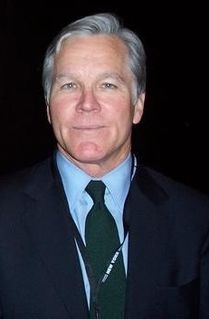A Quote by Marshall McLuhan
The printing press was at first mistaken for an engine of immortality by everybody except Shakespeare.
Quote Topics
Related Quotes
First book was handwritten, then the printing press, now we've got our Kindles. To be able to push a button and a dictionary comes up. And then, at my age, that I can make the letters any size I want, and that I can carry all of William Shakespeare, all of Gogol, all of Franz Kafka in my handbag? You've got to love it.
In one sense, the Internet is like the discovery of the printing press, only it's very different. The printing press gave us access to recorded knowledge. The Internet gives us access, not just to knowledge, but to the intelligence contained in people's crania, access to the intelligence of people on a global basis.
A global society is coming into being, a global society that is made out of information that was not intended to be ours, but is ours, by the mistaken invention of computers and the printing press, information is power, and information has spilled by the clumsy hands of the dominator culture so that the information is everywhere, never before has the situation been so fluid, we might be able to finally have a crack at this
The coming of the printing press must have seemed as if it would turn the world upside down in the way it spread and, above all, democratized knowledge. Provide you could pay and read, what was on the shelves in the new bookshops was yours for the taking. The speed with which printing presses and their operators fanned out across Europe is extraordinary. From the single Mainz press of 1457, it took only twenty-three years to establish presses in 110 towns: 50 in Italy, 30 in Germany, 9 in France, 8 in Spain, 8 in Holland, 4 in England, and so on.
Everybody thinks an automobile needs an engine. Well, an automobile doesn't necessarily need an engine. What we do is shift electric motors into the wheels of our automobiles and so we have a completely different kind of thing where we have four independent intelligent wheels rather than a traditional internal combustion engine and power train and so on.





































